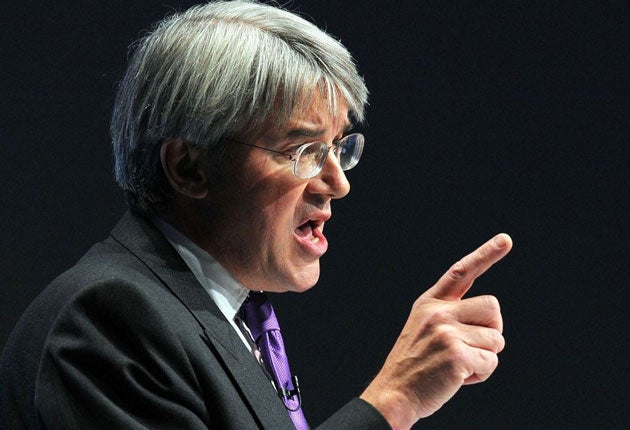Britain pledges funding boost for poor countries
Development Secretary says HIV drugs must be made available

Britain's funding of the international fight against Aids will receive a boost after the review of the aid budget put in place by the Coalition Government is complete, the Development Secretary, Andrew Mitchell, has said.
Though the aid budget is ring-fenced in the current cuts round, a review of spending is under way. One third of the staff of the Department for International Development will be cut. But spending will rise in other areas, Mr Mitchell told Anne Aslett, director of the Elton John Aids Foundation, at a private meeting this week.
When asked why Aids was omitted from the draft structural reform plan his department published in July, he said: "Without compromising the review I can tell you that the Global Fund [to Fight Aids, Tuberculosis and Malaria] is coming out of it extremely well. When the reviews of bilateral and multilateral aid are published in the new year you'll see our absolute commitment to the fight against HIV/Aids will be clear and indisputable." The Government is also "fully signed up" to the target of eradicating HIV transmission from mother to child by 2013.
The minister also expressed concern over the current trade negotiations between Europe and India which threaten to restrict the ability of India to supply the developing world with cheap anti-Aids drugs. "It's important that companies are able to put in place protection for their intellectual property but this must not have a negative impact on public health," he said. "The level of protection should be tailored to ensure that much-needed drugs are available in the poorest countries."
The increased spending on Aids will come as part of a DfID package which will also include cutting the department's administrative spend by a third. It has already let out the top two floors of its ministry to an outside body and reduced the travel budget.
But "in terms of programme spending I've agreed with the Treasury that in certain clear circumstances we will need to increase our head count and we will need to hire some different people as well," he said. The proportion of the aid budget spent in fragile and conflicted states will rise from 23 to 30 per cent.
Anne Aslett said afterwards: "It was striking that the examples the Secretary of State used were about Afghanistan, Yemen and Somalia where his Labour predecessor would have spoken about Africa. His rhetoric was attractive – speaking about measuring what is achieved rather than how much money is put in by government. But going for value for money and measurable results will mean he will have to say No to tackling some of the most serious problems which are by definition the most intractable."
The minister and the lobbyist agreed that Britain needed to be a leader internationally in pressing for innovative forms of finance to fund the fights against Aids and development in general. A tax on all financial transactions within the City, with the money dedicated to development, was one option, Ms Aslett said.
"A tax on bankers would go down well with the public," she said.
Mr Mitchell agreed. "And the Chancellor of the Exchequer has already has shown himself more sympathetic."
Join our commenting forum
Join thought-provoking conversations, follow other Independent readers and see their replies
Comments
Bookmark popover
Removed from bookmarks